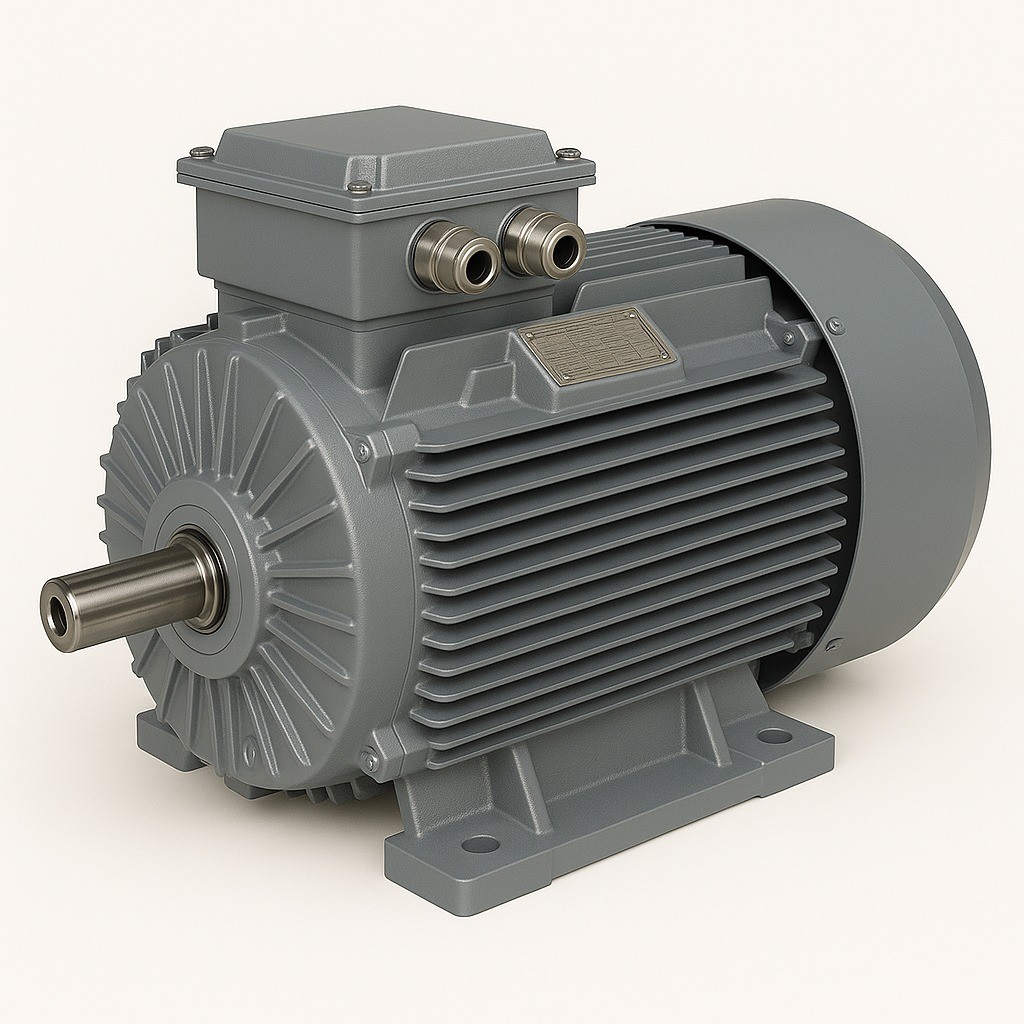How to Choose the Right Electric Motor
Selecting the right electric motor is a critical step to ensure both efficient motor operation and the long lifespan of the system. The choice of motor depends on the application, torque and speed requirements, energy efficiency, and operating conditions.
1. Determine the Motor Type
The first step is to decide whether the application requires an AC (alternating current) or DC (direct current) motor.
-
AC motors are generally preferred for continuous and high-power applications such as factories, pumps, and fans.
-
DC motors are ideal for systems requiring precise speed and torque control, robotics, or portable devices.
2. Power and Torque Requirements
The motor must have sufficient power to drive the load efficiently. Consider:
-
Starting torque required by the load
-
Continuous operating torque
-
Maximum load torque
Motors with high torque capacity are essential for heavy machinery or industrial systems like crushers and conveyors.
3. Speed Requirements
The motor’s output speed should match the application’s required speed range.
-
Fixed-speed operation is sufficient in some cases.
-
Variable speed control may be required for others; in such cases, AC motors with frequency converters or brushless DC motors are more suitable.
4. Operating Conditions
Consider the environment where the motor will operate:
-
Temperature, humidity, dust, and chemical exposure
-
Motors in dusty or humid environments should have a high IP protection rating
-
For heavy industrial use, select motors resistant to vibration and shocks
5. Energy Efficiency
Efficiency is key for reducing energy consumption and operational costs.
-
Modern AC motors with IE3, IE4, or IE5 efficiency classes help minimize energy use.
6. Size and Mounting Compatibility
The motor’s physical dimensions and mounting type must fit the system.
-
Consider options such as flange-mounted, foot-mounted, or geared motors
7. Special Requirements and Extras
Some applications may require:
-
Quiet operation
-
Feedback systems
-
Braking features
-
Compact design
These special needs can influence the motor selection process.
Conclusion:
Choosing the right electric motor directly affects both motor performance and system efficiency. By carefully considering load calculations, environmental conditions, and energy efficiency criteria, the motor will operate reliably, have a longer lifespan, and help minimize operational costs.
 English
English
 Türkçe
Türkçe

